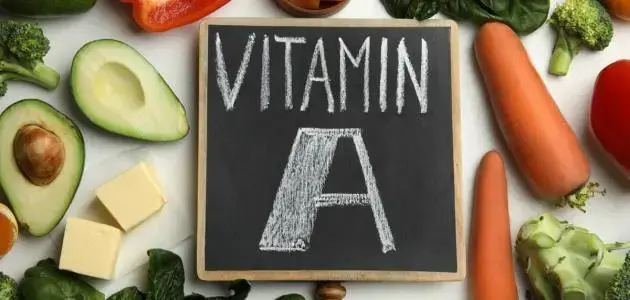Vitamin A is one of the earliest vitamins discovered by humans. It consists of a group of unsaturated, fat-soluble compounds, including retinol and beta-carotene. This vitamin plays a crucial role in strengthening the immune system, enhancing vision, maintaining healthy skin, and supporting skin growth. Additionally, it helps prevent blindness and protects the eyes from dryness.
Vitamin A and Facial Care
Vitamin A is widely used in cosmetic products due to its numerous benefits for the skin, especially the face. It promotes a radiant complexion and keeps the skin consistently hydrated, which helps prevent stretch marks caused by dryness.
Key Benefits of Vitamin A for the Face
- Renews skin cells and strengthens skin tissues.
- Eliminates pimples and reduces oily skin secretion.
- Slows down wrinkle formation with its antioxidant properties that protect against harmful environmental factors.
- Reduces dark circles under the eyes by applying vitamin A oil directly to the area.
- Delays the appearance of fine lines by applying the contents of a vitamin A capsule around the eyes daily.
- Evens out skin tone and lightens dark spots by combating free radical production.
- Helps get rid of acne and warts.
DIY Vitamin A Face Mask Recipe
You can easily prepare vitamin A-rich face masks at home. One effective recipe combines potatoes and carrots: boil a quantity of potatoes and carrots, mash them thoroughly in a deep bowl, then add some ground turmeric and a spoonful of natural honey. Mix well until a soft paste forms. Apply this mixture evenly on the face, leave it on for 10 minutes, then rinse with water. For best results, repeat this treatment twice a week.
Natural Sources of Vitamin A
Vitamin A can be obtained from both plant-based and animal-based sources:
Plant-Based Sources
- Carrots, highly recommended as a healthy snack.
- Red peppers.
- Sweet potatoes.
- Leafy greens like lettuce and thyme.
- Apricots, mangoes, watermelon, and broccoli.
Animal-Based Sources
- Milk and its derivatives such as labneh and cheese.
- Eggs.
- Liver and most legumes.
- Cod liver oil.
Leave a comment
Your email address will not be published. Required fields are marked *




